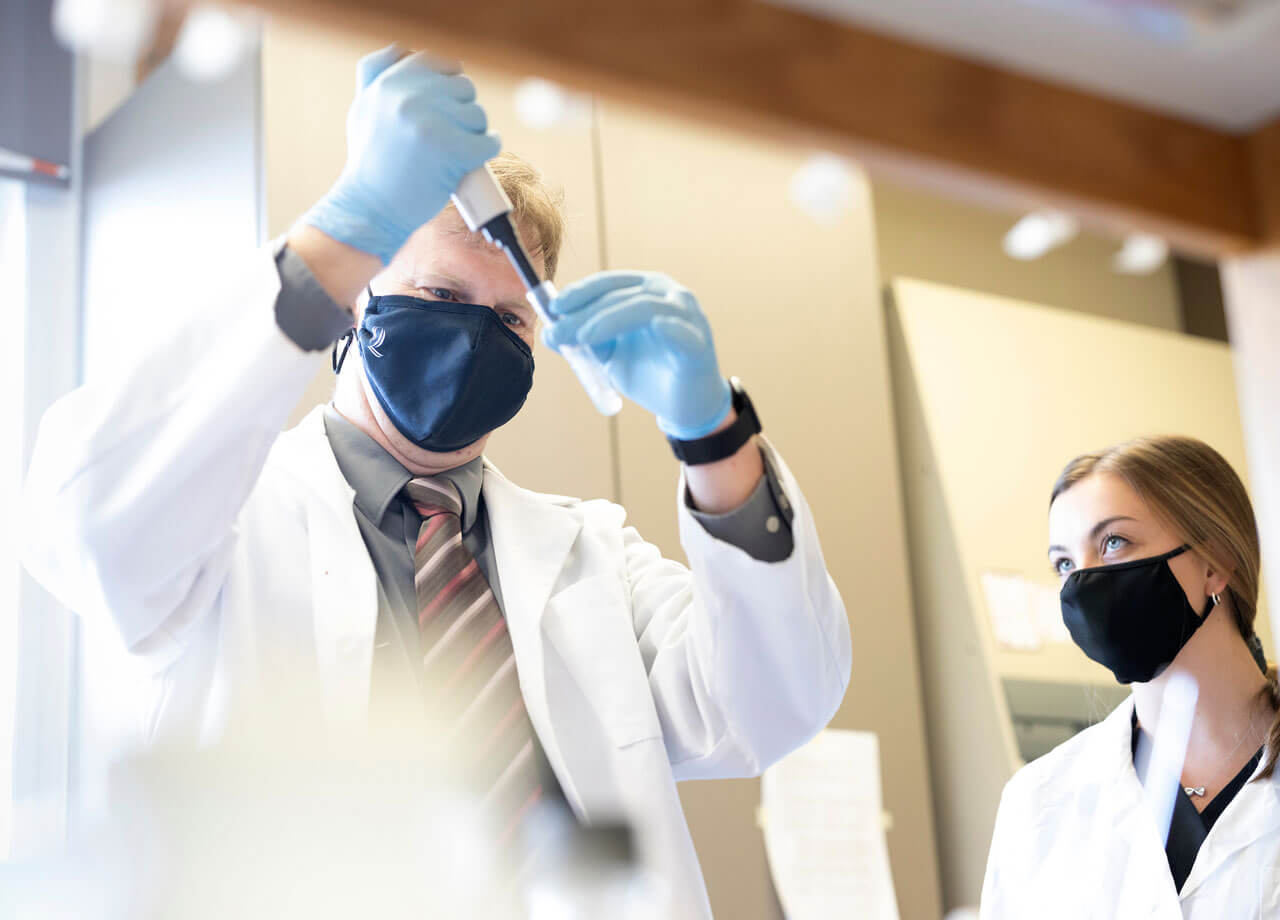
Microbiology professor inspires generation of students to find creative solutions to challenging problems


Eggers teaches several courses including microbiology, pathogenic microbiology and epidemiology. He also oversees the microbiology seminar and supervises undergraduate and graduate students who collaborate with him on his research.
Lyme disease, transmitted by ticks, is caused by the bacterium Borrelia burgdorferi.
“We study what B. burgdorferi does when it enters a human host and causes Lyme disease, as well as the evolutionary or genetic mechanisms that make it the bacterium it is… and allow it to build its genome and survive in a host,” he said.
Some of his students have been listed as co-authors on papers he wrote that were published in academic journals, such as Pathogens & Disease and Molecular Microbiology. Others have presented posters at national conferences hosted by the American Society of Microbiology and the 2016 Gordon Research Conference on the Biology of Spirochetes.
“One of the reasons I came to Quinnipiac is to work with students,” Eggers said.
He likened his teaching philosophy to the role that parents play. “We know how important modeling is for parents. I feel it is important for a professor to engage with a student in the same way. If I can show students that I’m reading literature, thinking about a problem, making mistakes and rectifying them, they will learn what kinds of things lead to solutions or how critical thinking can be applied to solve problems,” he explained.
Becoming familiar with research methods and getting experience in the lab is especially important for students going on to graduate education and medical school, he noted. He earned a BS degree in microbiology from Colorado State University and a PhD in biochemistry/microbiology with an emphasis in molecular biology from the University of Montana.
Samantha Sawicki ’20, MHS ’21, has done independent study with Eggers and also volunteered in his lab. In the summer of 2019, she did a summer QUIP-RS (Quinnipiac University Interdisciplinary Program for Research & Scholarship) fellowship with Eggers. Her goal is to work in bench science once she earns her graduate degree in biomedical sciences. Eggers is the adviser for Sawicki’s thesis, which is focused on aspects of Borrelia burgdorferi.
“Professor Eggers is very intelligent and passionate about his research,” she said, explaining that he takes the time to make sure his students comprehend the material. “He will explain it 10 times over, which makes you want to learn from him,” she said.
Quinnipiac Today is your source for what's happening throughout #BobcatNation. Sign up for our weekly email newsletter to be among the first to know about news, events and members of our Bobcat family who are making a positive difference in our world.
Sign Up Now